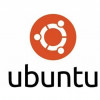USN-7381-1: Linux kernel (Low Latency) vulnerabilities
USN-7381-1: Linux kernel (Low Latency) vulnerabilities
27 March 2025
Several security issues were fixed in the Linux kernel.
Releases
- Ubuntu 24.04 LTS
Packages
- linux-lowlatency-hwe-6.11 - Linux low latency kernel
Details
Attila Szász discovered that the HFS+ file system implementation in the
Linux Kernel contained a heap overflow vulnerability. An attacker could use
a specially crafted file system image that, when mounted, could cause a
denial of service (system crash) or possibly execute arbitrary code.
(CVE-2025-0927)
Several security issues were discovered in the Linux kernel.
An attacker could possibly use these to compromise the system.
This update corrects flaws in the following subsystems:
- ARM64 architecture;
- MIPS architecture;
- PowerPC architecture;
- RISC-V architecture;
- S390 architecture;
- x86 architecture;
- Block layer subsystem;
- Compute Acceleration Framework;
- ACPI drivers;
- Drivers core;
- Ublk userspace block driver;
- Virtio block driver;
- Bluetooth drivers;
- Buffer Sharing and Synchronization framework;
- DMA engine subsystem;
- EFI core;
- GPIO subsystem;
- GPU drivers;
- HID subsystem;
- Microsoft Hyper-V drivers;
- Hardware monitoring drivers;
- I3C subsystem;
- IIO ADC drivers;
- IIO subsystem;
- InfiniBand drivers;
- IOMMU subsystem;
- LED subsystem;
- Multiple devices driver;
- Media drivers;
- Microchip PCI driver;
- MTD block device drivers;
- Network drivers;
- Mellanox network drivers;
- STMicroelectronics network drivers;
- NVME drivers;
- PCI subsystem;
- PHY drivers;
- Pin controllers subsystem;
- x86 platform drivers;
- i.MX PM domains;
- Power supply drivers;
- Voltage and Current Regulator drivers;
- SCSI subsystem;
- i.MX SoC drivers;
- SPI subsystem;
- UFS subsystem;
- USB Gadget drivers;
- TDX Guest driver;
- AFS file system;
- BTRFS file system;
- Ceph distributed file system;
- File systems infrastructure;
- F2FS file system;
- JFFS2 file system;
- JFS file system;
- Network file systems library;
- Network file system (NFS) server daemon;
- NILFS2 file system;
- File system notification infrastructure;
- Overlay file system;
- Diskquota system;
- SMB network file system;
- DRM display driver;
- BPF subsystem;
- VLANs driver;
- KASAN memory debugging framework;
- Memory management;
- StackDepot library;
- Bluetooth subsystem;
- LAPB network protocol;
- Network namespace;
- Netfilter;
- io_uring subsystem;
- Control group (cgroup);
- DMA mapping infrastructure;
- KCSAN framework;
- Scheduler infrastructure;
- Seccomp subsystem;
- Tracing infrastructure;
- Workqueue subsystem;
- KUnit library;
- CAN network layer;
- Networking core;
- DCCP (Datagram Congestion Control Protocol);
- HSR network protocol;
- IEEE802154.4 network protocol;
- IPv4 networking;
- IPv6 networking;
- MAC80211 subsystem;
- Multipath TCP;
- NET/ROM layer;
- Packet sockets;
- RDS protocol;
- Network traffic control;
- SCTP protocol;
- SMC sockets;
- TIPC protocol;
- Wireless networking;
- eXpress Data Path;
- SELinux security module;
- ALSA framework;
- Intel ASoC drivers;
- SOF drivers;
(CVE-2024-56712, CVE-2024-56761, CVE-2025-21661, CVE-2024-56565,
CVE-2024-57804, CVE-2024-57887, CVE-2025-21642, CVE-2024-56779,
CVE-2025-21656, CVE-2024-57890, CVE-2024-36476, CVE-2024-57843,
CVE-2024-56594, CVE-2024-41932, CVE-2025-21653, CVE-2024-56567,
CVE-2024-56665, CVE-2024-54191, CVE-2024-57893, CVE-2024-57932,
CVE-2024-56656, CVE-2024-57945, CVE-2024-57931, CVE-2024-56599,
CVE-2024-57897, CVE-2024-57903, CVE-2024-57918, CVE-2024-57795,
CVE-2024-56662, CVE-2025-21639, CVE-2024-55881, CVE-2024-57889,
CVE-2024-57884, CVE-2024-57934, CVE-2024-39282, CVE-2024-56718,
CVE-2024-56644, CVE-2024-56760, CVE-2024-43098, CVE-2024-47143,
CVE-2024-55642, CVE-2024-56634, CVE-2024-56564, CVE-2024-56768,
CVE-2024-56649, CVE-2024-57919, CVE-2024-56620, CVE-2024-56625,
CVE-2024-56655, CVE-2024-56772, CVE-2025-21637, CVE-2024-56617,
CVE-2024-57879, CVE-2024-56715, CVE-2024-56550, CVE-2024-50051,
CVE-2024-56673, CVE-2024-51729, CVE-2025-21664, CVE-2025-21649,
CVE-2024-56605, CVE-2024-56622, CVE-2024-56591, CVE-2024-56782,
CVE-2024-57801, CVE-2024-56664, CVE-2024-57916, CVE-2024-53680,
CVE-2024-57926, CVE-2024-56637, CVE-2024-56769, CVE-2024-57924,
CVE-2024-56648, CVE-2024-57872, CVE-2024-56593, CVE-2024-57913,
CVE-2024-53682, CVE-2024-56670, CVE-2024-56767, CVE-2024-56778,
CVE-2024-56777, CVE-2025-21658, CVE-2025-21646, CVE-2024-48875,
CVE-2024-56758, CVE-2024-56604, CVE-2024-56787, CVE-2024-56581,
CVE-2025-21635, CVE-2024-56641, CVE-2024-56608, CVE-2024-57885,
CVE-2024-56716, CVE-2024-56671, CVE-2024-56559, CVE-2025-21633,
CVE-2024-56372, CVE-2024-57888, CVE-2024-56623, CVE-2025-21638,
CVE-2024-56600, CVE-2024-56647, CVE-2025-21659, CVE-2024-41935,
CVE-2024-56624, CVE-2024-56574, CVE-2025-21648, CVE-2024-56621,
CVE-2024-54460, CVE-2024-56659, CVE-2024-47141, CVE-2024-57805,
CVE-2024-57792, CVE-2024-45828, CVE-2024-53681, CVE-2024-56568,
CVE-2024-56764, CVE-2025-21650, CVE-2024-56601, CVE-2024-56663,
CVE-2025-21660, CVE-2025-21629, CVE-2024-56595, CVE-2024-57917,
CVE-2024-53685, CVE-2024-57882, CVE-2024-57894, CVE-2024-56651,
CVE-2024-56657, CVE-2024-57876, CVE-2024-56717, CVE-2024-57935,
CVE-2024-56667, CVE-2024-57910, CVE-2024-57793, CVE-2024-56631,
CVE-2024-56638, CVE-2025-21640, CVE-2024-56710, CVE-2024-56583,
CVE-2024-56557, CVE-2024-56658, CVE-2025-21632, CVE-2024-56645,
CVE-2024-56646, CVE-2024-56640, CVE-2024-57944, CVE-2024-56598,
CVE-2024-57857, CVE-2024-56709, CVE-2024-56654, CVE-2024-57809,
CVE-2024-57895, CVE-2025-21834, CVE-2024-56763, CVE-2024-48881,
CVE-2024-57841, CVE-2024-57878, CVE-2024-56774, CVE-2024-57791,
CVE-2024-56575, CVE-2024-56619, CVE-2024-56570, CVE-2024-56616,
CVE-2024-56569, CVE-2025-21636, CVE-2024-56572, CVE-2024-56552,
CVE-2024-56596, CVE-2025-21654, CVE-2024-56573, CVE-2024-56784,
CVE-2024-56626, CVE-2024-56642, CVE-2024-56643, CVE-2024-56719,
CVE-2024-56632, CVE-2024-57839, CVE-2024-56578, CVE-2024-53690,
CVE-2024-56609, CVE-2024-56562, CVE-2024-56589, CVE-2024-56781,
CVE-2024-56672, CVE-2024-56775, CVE-2024-56713, CVE-2024-56580,
CVE-2024-57874, CVE-2024-56369, CVE-2024-56711, CVE-2025-21651,
CVE-2024-56584, CVE-2024-57904, CVE-2024-54680, CVE-2024-56577,
CVE-2024-56558, CVE-2024-56780, CVE-2024-58087, CVE-2024-57892,
CVE-2025-21644, CVE-2024-57911, CVE-2024-56579, CVE-2025-21663,
CVE-2024-56618, CVE-2024-56766, CVE-2024-56653, CVE-2025-21655,
CVE-2024-56669, CVE-2024-56759, CVE-2024-48876, CVE-2025-21631,
CVE-2024-56765, CVE-2024-56770, CVE-2024-57838, CVE-2025-21634,
CVE-2024-56650, CVE-2024-57939, CVE-2024-56606, CVE-2024-56610,
CVE-2025-21662, CVE-2024-56785, CVE-2024-55916, CVE-2025-21643,
CVE-2024-56586, CVE-2024-56582, CVE-2024-56614, CVE-2024-49571,
CVE-2024-49569, CVE-2024-57798, CVE-2024-56633, CVE-2024-55641,
CVE-2025-21647, CVE-2025-21652, CVE-2024-56757, CVE-2024-56597,
CVE-2024-47794, CVE-2024-57902, CVE-2024-57925, CVE-2024-54683,
CVE-2024-57938, CVE-2024-56615, CVE-2024-57906, CVE-2024-53687,
CVE-2024-57899, CVE-2024-56783, CVE-2024-56786, CVE-2024-56635,
CVE-2024-56551, CVE-2024-53179, CVE-2024-56588, CVE-2024-47408,
CVE-2024-57849, CVE-2024-52319, CVE-2024-56576, CVE-2024-57905,
CVE-2024-57946, CVE-2024-56607, CVE-2024-57806, CVE-2024-57933,
CVE-2024-55639, CVE-2024-56561, CVE-2024-48873, CVE-2024-52332,
CVE-2025-21645, CVE-2024-56602, CVE-2024-56590, CVE-2024-57799,
CVE-2024-57929, CVE-2024-56639, CVE-2024-56613, CVE-2024-56675,
CVE-2024-57912, CVE-2024-57883, CVE-2024-56636, CVE-2024-56592,
CVE-2024-57802, CVE-2024-54455, CVE-2024-57908, CVE-2024-56603,
CVE-2024-57875, CVE-2024-56773, CVE-2024-47809, CVE-2024-56630,
CVE-2024-56587, CVE-2024-56627, CVE-2024-57921, CVE-2024-56660,
CVE-2024-56771, CVE-2024-57886, CVE-2024-57896, CVE-2024-57807,
CVE-2024-57907, CVE-2024-49568, CVE-2024-54193, CVE-2024-56652,
CVE-2024-57940, CVE-2024-57898, CVE-2024-57901, CVE-2024-56714,
CVE-2024-56566, CVE-2024-56563, CVE-2024-56368, CVE-2024-56611,
CVE-2024-56776, CVE-2024-57850, CVE-2024-56629, CVE-2024-57881,
CVE-2024-57880, CVE-2024-57900)
Update instructions
The problem can be corrected by updating your system to the following package versions:
Ubuntu 24.04
- linux-image-6.11.0-1011-lowlatency - 6.11.0-1011.12~24.04.1
- linux-image-6.11.0-1011-lowlatency-64k - 6.11.0-1011.12~24.04.1
- linux-image-lowlatency-64k-hwe-24.04 - 6.11.0-1011.12~24.04.1
- linux-image-lowlatency-hwe-24.04 - 6.11.0-1011.12~24.04.1
After a standard system update you need to reboot your computer to make
all the necessary changes.
ATTENTION: Due to an unavoidable ABI change the kernel updates have
been given a new version number, which requires you to recompile and
reinstall all third party kernel modules you might have installed.
Unless you manually uninstalled the standard kernel metapackages
(e.g. linux-generic, linux-generic-lts-RELEASE, linux-virtual,
linux-powerpc), a standard system upgrade will automatically perform
this as well.


